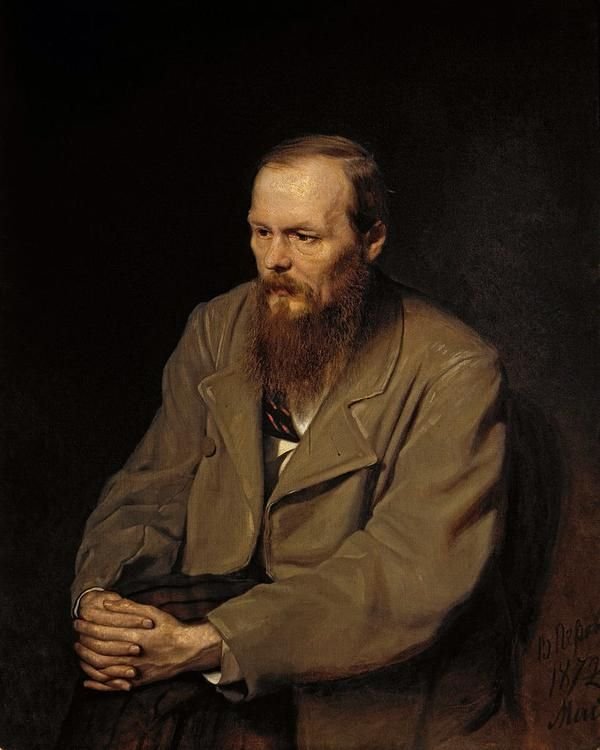White Nights
Author: Fyodor Dostoyevsky
Originally Published: 1848
Rating: ★ ★ ★ ★
written by: Tina Nguyen | date: 12th May, 2025
‘White Nights’ is a short novel about the unrequited love of an unknown storyteller and a young girl named Nastenka. The unknown man was on his way home to his apartment when he spotted Nastenka on the opposite sidewalk across the street. The storyteller saved her from a creepy man by intervening, maybe as her acquaintance in this situation, to cut him off. The story between them began after that — they grew closer, kept each other company, and somehow, two lonely souls found a way to open up to more secrets and stories. Dostoyevsky kept the narrator’s name unknown as a way to highlight his plain, boring life without anything to tell Nastenka. However, she believed that no matter how bland and empty one’s life was, there was always a story to tell, as long as one still lived.
Narrator: “My story! But who told you that I have a story to tell? I don’t have a story…”
Nastenka: “But how have you lived if there’s no story?”
The bond of their relationship grew stronger, it started revealing Nastenka’s deepest secret — her heart had belonged to someone else for a long time, someone far away in Moscow that she planned to impulsively run away with. As stated before, the narrator remained anonymous to highlight the unimportance, plain life compared to Nastenka — this was justified through the details when he agreed to deliver her letters to her lover, to keep his untold feelings for himself, as well as to feel her happiness as his happiness, and her unhappiness was also his, demonstrated his deep love for this young girl, who seemed like the light to his darkness.
“How could I have been so blind, when everything had already been taken by another, when everything was not mine, when, in the end, even this very tenderness of hers, her attentions, her love… yes, her love for me — was nothing more than joy at the impending meeting with someone else, the desire to thrust her happiness on me?…
…
And so it is that when we are unhappy, we more strongly feel the unhappiness of others; feeling is not shattered, but becomes concentrated.”
Nastenka was completely oblivious to the narrator’s feelings for her, and she only loved him as her brother, her friend.
“I love you because you didn’t fall in love with me. Why, someone else in your place would have started bothering me, pestering me, sighing, falling ill, but you’re such a dear!”
And then she squeezed my hand so that I almost cried out. She laughed.
“When I’m married, we will be great friends, more than if we had been brothers, I will love you almost as much as I love him…”
The narrator’s feelings were overflowing and he couldn’t keep them in his heart anymore. He decided to break free from the mental cage that he put himself in and confessed to Nastenka. But it was rather a desperate plea from him that came with a cry from Nastenka right after that, confessing why her lover wasn’t as caring and loving as the unnamed narrator, even though she could not stop loving him more than anything else, even herself.
“Your hand is cold, mine is as hot as fire. How blind you are, Nastenka!…”
The story came to an end when Nastenka ran to her lover and left the narrator right away, after she lost all hope and decided to give him a chance, and to give herself a chance to be in love with him as a way to move on. Despite enjoying his bliss for only half a day, until her lover suddenly appeared on the street they were passing by, the poor narrator still felt more than enough that he got a mere taste of true happiness for the first time in his miserable life before he went back to his harsh reality — Nastenka’s heart had always been someone else’s — he was like a beggar that had been given food, even if it was just a little.
“My God! A whole minute of bliss! is that really so little for the whole of a man’s life?”
“I’m a simple person, poor and insignificant, only that’s not the point, but only I would love you so, I would love you so, that even if you still loved him and continued to love this person whom I don’t know, you still would not find my love to be a burden to you in anyway. … Oh, Nastenka, Nastenka! What have you done to me!…”
‘White Nights’ was not a love story, it was a story about love. Dostoyevsky used lots of exclamation marks throughout the novel to express the intensity of the characters’ emotions as well as the craze, the crave, the yearning of both main characters — Nastenka yearned for her lover, the anonymous narrator yearned for her. Furthermore, Dostoyevsky intentionally did not mention the narrator’s name in order to get readers’ focus on Nastenka, as he wanted to fully portray the obsessive, desperate love of his storyteller for the young girl, and his attachment to her as his only happiness, the cure to his lonely life.
